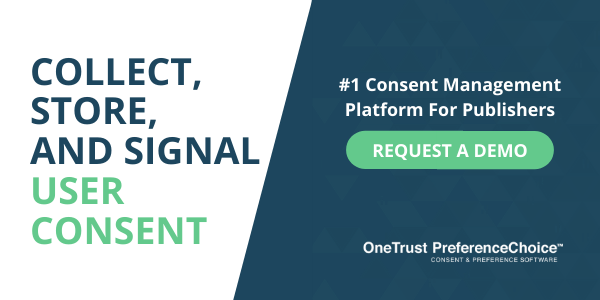 |
||||||||||||
|
||||||||||||
| Don’t Call It a Comeback—Yet |
| Ad spend may have begun slowly trickling through the programmatic pipes starting in May, but beleaguered advertisers aren’t at all hopeful that 2020 will see the kinds of year-over-year increases that were originally predicted. Since the pandemic first began to wreak havoc on the advertising industry, we’ve written a lot about the downward spiral of ad spend that it’s become a resounding tune stuck in our heads. Yet even as the musicians change, the song still remains the same. Wasn’t it just in May, that advertiser confidence was on the mend with expectations that Q3 would signal a rebound? At least that was the news coming out of Advertiser Perceptions’ study on the effects of COVID-19 on the ad business. It just so turns out advertisers aren’t so sure when their budgets might return to normal. Wave five of the Advertiser Perceptions’ study, conducted May 18-21 showed 43% of media buyers—up from 31% in wave four—expecting ad spending in Q3 to remain significantly impacted by the pandemic. |
| As we watch states start rolling back openings and the numbers of the unemployed continue to swell, it seems indefinite that we’ll remain an industry in flux. It’s 99.9% likely that there’ll be no recovery for digital media and advertising until some time well into 2021, especially if there’s no vaccine at the ready. Given what marketers recently told Gartner, 71% plan to spend money on digital media in 2021. Though any ideas of business as usual are like a far off dream, perhaps even two years away. Still, things aren’t quite as dire as they were in March. Meanwhile, pubs can focus on strengthening their revenue diversification strategies while restructuring their sales efforts to focus on the verticals that are currently spending. |
| Breaking Up Is Hard to Do |
| We’re not ones to beat a dead horse, but we have been known to be somewhat cynical especially when it comes to this Facebook ad boycott. While nearly 1,000 companies have joined the Facebook ad boycott we can’t help wondering just how impactful it wil (or is it won’t?) be. It’s not just a question of whether Facebook will ever institute the kinds of sweeping changes on their platform that will serve for the good of society; but we’re a little concerned about the little guys, the small-and-medium-sized businesses that can’t afford to press pause the way the big guys like Verizon or Coca-Cola can. First, let’s be clear: “Many of the 500 or so companies that boycott Facebook have never bought ads on Facebook,” as Josh Sternberg pointed out in his MediaNut newsletter recently. Many of those large brands had either already paused spending on Facebook or pulled back significantly in the past two years following algorithmic and targeting changes on the platform that raised prices but limited reach. Yet for many small-and-medium-sized brands, Facebook remains their only hope of reaching customers in the most cost-effective way. These are the brands that rely on direct response marketing instead of building brand awareness, like many of the participants in the boycott. For them, the social media network is a bad habit they can’t break. As David Carrol, associate professor of media design at Parsons School of Design, notes in Promarket: “The targeting and the reach available to direct response marketers on Facebook and Instagram are too effective to resist.” Besides, it’s not like consumers are breaking up with brands over participation in the boycott. According to Morning Consult data, 61% of consumers said that participation in the boycotts wouldn’t impact their view of a company (or they had no opinion). But that really all depends on which consumers we’re talking about here. We’re probably not talking about the groups of people most negatively affected by hate speech and disinformation across social media. |
| Facebook’s half-assed response to civil rights groups only further highlights the performative allyship aspects of the boycott—and that’s a major problem. When you consider that the brands pausing spend or pulling out their investments only account for a small percentage of the network’s revenue and that it’s the SMBs that make up its lifeblood then the picture becomes much more vivid. Many of these smaller brands want to stop hateful speech and the spread of disinformation too, but with sales already hammered by COVID-19, it’s a matter of walking a very tight rope for them. If you’re a direct-to-consumer brand, Facebook, and by extension Instagram, are going to be your strongest—if not only—marketing plays. Their hands are essentially tied. What should they do when the big brands pull out and auction prices go down? Wouldn’t it be a smart business move to take advantage of lower prices? Maybe it’s time publishers stepped up and built more reliable first-party data platforms to offer stronger alternatives to SMBs. It’s just a thought. |
| CCPA Challenges on Facebook | ||
 |
||
| The California Consumer Privacy Act (CCPA) is causing challenges for some businesses—especially those with data-sharing relationships, like the ones between advertisers and Facebook. This week, Facebook announced a new feature called Limited Data Use (LDU) that will have an impact on Facebook ad buyers — and potentially your marketing performance. The feature automatically detects if a user resides in California and applies limited data use rules. Facebook has already enabled this feature for all business accounts, but once July 31 hits, Facebook will require businesses to update their pixel to include an LDU parameter. | ||
| If your business is marketing to California residents on Facebook—regardless of where you are located—you must be compliant, or you could face possible penalties. Facebook has not been the most communicative about CCPA compliance, which means you are responsible for assessing and taking actions. Here are two options to take: Use a Consent Management Platform that provides users the choice to opt-out of tracking. You would then only enable LDU for the users who opt-out, which will also disable the Facebook pixel from firing. This will likely allow you to deliver ads based on behavior and retarget ads as usual if California users decide not to opt-out. If the user has been identified as a California resident, enable the LDU string on all instances of the PageView tag firing. The major downside is that California residents will be excluded from re-marketing campaigns so you will likely see a large performance hit. Whichever option makes more sense for your business, be sure you update your Facebook pixel accordingly before August 1 to protect your advertising spend and avoid getting fined. |
||
|
||
 |
| Amazon + Roku = Peacock Block |
| When Comcast’s NBC Universal’s Peacock launches this week there’s a huge chance it won’t be available on either Amazon or Roku. If this sounds at all familiar to the recent launch of AT&T's HBO Max being absent from the two major CTV players’ lineup, that’s because on a lot of levels it very well is. With Amazon, Peacock wants the same deal that Disney+, which enabled the Mouse’s house (or is that Alexander Graham Bell’s house?) to own user signups through their own apps and websites, providing them with prized first-party data including what people watch and when. As for Roku, it’s an ultimate battle for shares of advertising inventory. Winner takes all—or something like that. |
| All of these legacy TV networks now coming into the OTT game are vying for a piece of the walled garden dream. Unfortunately, the early CTV players—namely Roku and Amazon—with the widest market reach, which accounts for about 70% share, are flexing their muscles and jacking up everyone’s plans. Peacock has a long vision though, the execs aren’t looking for it to be just some ancillary channel sitting on a CTV service. Deals with A+E, BET and ViacomCBS reveal the services ambition to build a library that extends far beyond just NBC content even streaming soon-to-be-released films, which sounds like it wants to compete with the likes of Netflix or Hulu, or perhaps Amazon itself. Just in case you were in doubt, these are very much the ambitions of a walled garden. Sure the combined power of Amazon and Roku for OTT distribution is reminiscent of the power of the duopoly in advertising, but maybe the streaming heavyweights forgot that subscriptions to OTT services with a wealth of content are a prime part of their business models. Is this like the battle between the cable carriers and the networks over carriage fees all over again? In the future or CTV will those that wield the most power, reap the most plentiful harvest? Let’s keep watching for a few months and see how it all pans out. |









